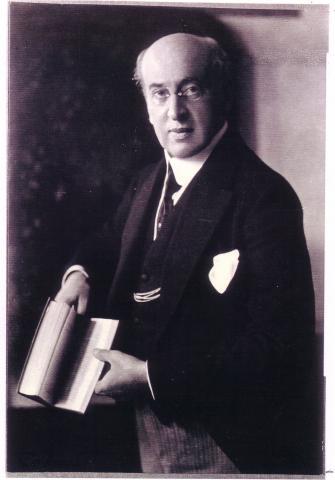Eline Vere
This story of a tragic female misfit ranks with similar portraits by Flaubert, Tolstoy and Ibsen. It is a subtle psychological novel set against a dazzling panorama of Hague society, where the life of a group of leisured families, with its succession of balls, dinners, entertainments and excursions acts as a foil to the heroine’s increasing isolation.

The author introduces us, sensitively and subtly, to a gallery of men who impact on her life in various ways. That gallery includes her father, the failed artist, the opera singer Fabrice, by whom she is briefly dazzled, her well-meaning fiancé Otto, her fatalistic cousin Vincent and the energetic, optimistic American Lawrence St Clare. Sadly, none is able to offer her the support and sustenance she needs.
A very popular and widely read author in the Netherlands, Louis Couperus won the admiration of readers and writers in Britain and America: Oscar Wilde complimented him on his handling of sexuality in Footsteps of Fate, D.H. Lawrence admired Of Old People and the Things that Pass, while Katherine Mansfield praised The Books of the Small Souls.
Sadly, his international popularity did not survive the First World War, which confined him within the borders of the neutral Netherlands and prevented him from capitalizing on his reputation. However, enough of his output remains available to show what a compelling read he can be. To this day, Couperus is known for narrative flair, plotting, perceptive characterization and vivid dialogue, Eline Vere being a prime example.
Like Dickens, Couperus was a famed reader of his own work and the dandy in him liked to orchestrate every aspect of the event, insisting on having the onstage flowers replaced during the interval, and even changing his tie and socks to reflect a shift in mood.
Though he did not publicize the fact, Couperus’s colonial family, which included more than one governor general of the Dutch East Indies, also included several Eurasian relations. This may help explain the perceptiveness with which he writes about mixed-race characters in The Hidden Force.
Shortly before his death in 1923, Couperus sold the film rights to The Hidden Force to an American company but the picture was never made. Film director Paul Verhoeven has announced his intention to film Couperus’ novel.
“His insight into the tragedy of European colonialism made Couperus a great writer. And his sympathy for the hybrid, the impure and the ambiguous gave him a peculiarly modern voice. It is extraordinary that this Dutch dandy, writing in the flowery language of fin-de-siècle decadence, should still sound so fresh.”
